Parliamentary Standing Committee Report on IPR: Tipping the Scales of Patent Law? Part II
SpicyIP
AUGUST 1, 2021
Section 11 (b) read with Rule 24B of Patents Rules, 2003 concerning patent application exam stipulates a 48-month period from the date of priority or filing of patent application within which a request for examination of the application needs to be made. Easing such norms makes the process more accessible.

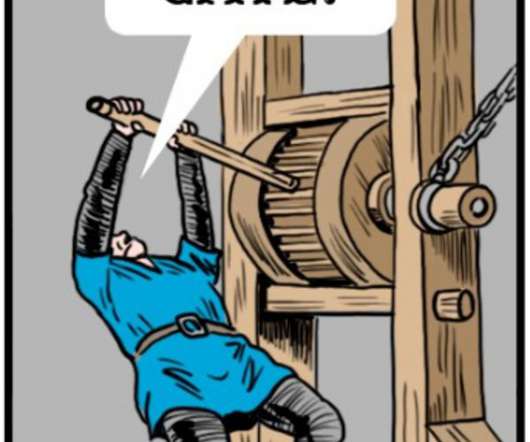
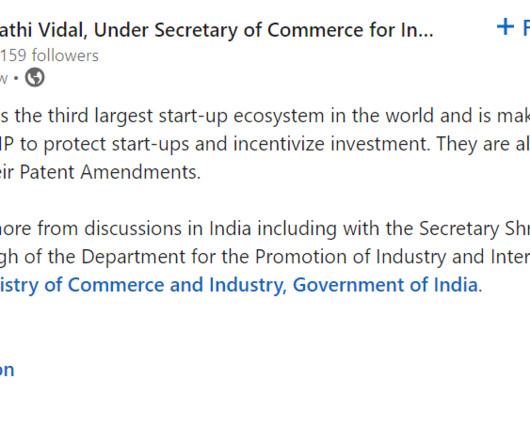
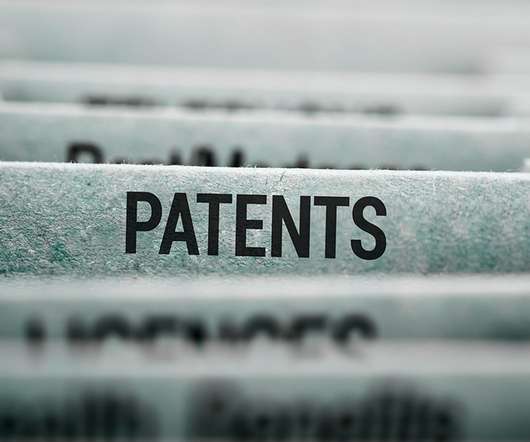
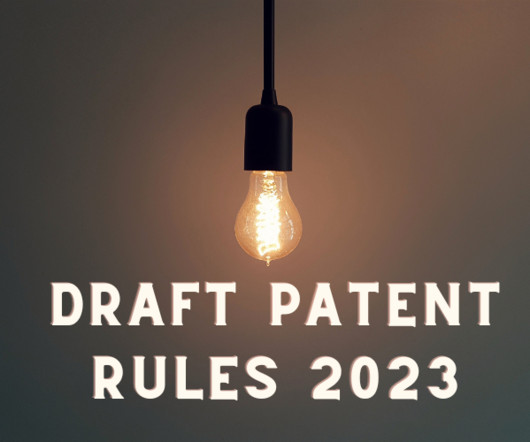
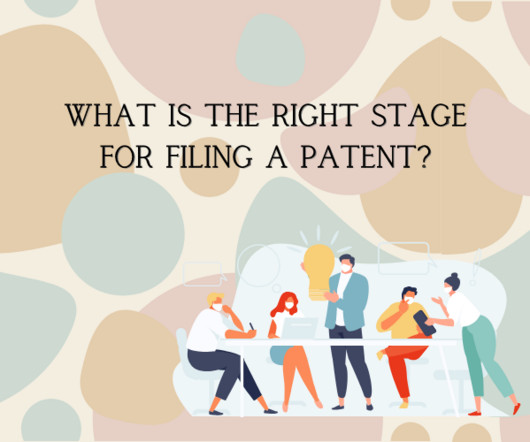
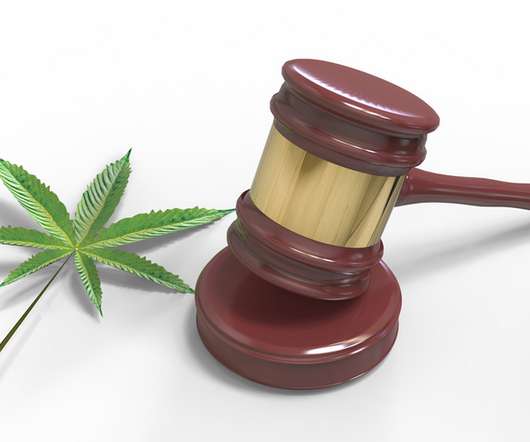
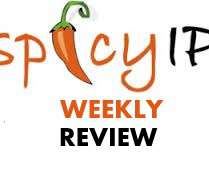







Let's personalize your content